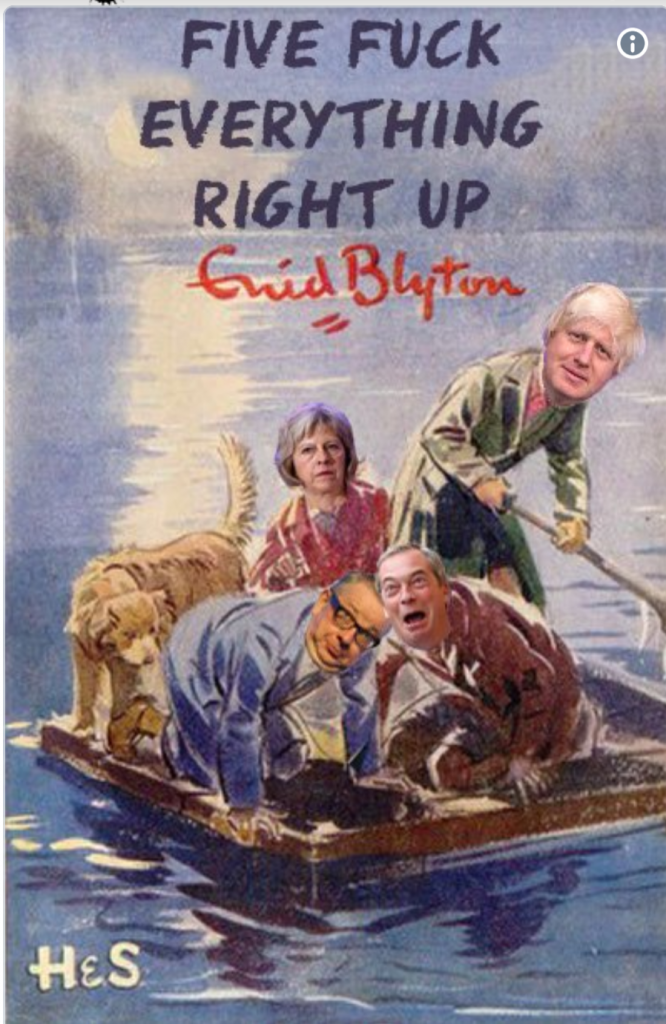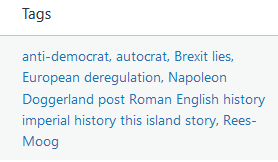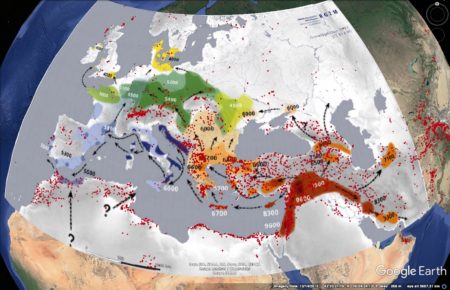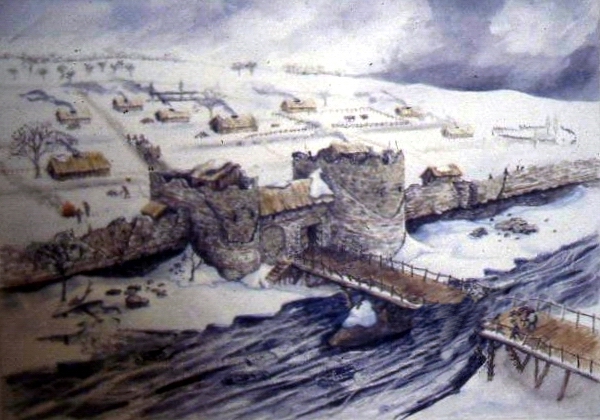
On this day in 2021, the United Kingdom, formally left the European Union.
I remember vividly the morning the referendum result was announced. We were in Glasgow for my daughter’s Graduation, and we all burst into tears.
I remain angry, (as you can see from the tags to my post, below, made exactly one year ago). It’s not so much at the idea, but the stupid way Brexit was done, with no planning or regard for consequences, just this blind idea that we, the British, were special.

So how is it going? Support for Brexit has gone right down. 60% think it was a mistake, 35% think it was the right decision. The country is in a complete mess, most of our institutions are failing because of lack of money and a truly incompetent Conservative government. Even Nigel Farage has agreed that ‘Brexit has failed.‘
But, at least, under Sunak, the Conservatives have stopped going on about ‘Brexit Opportunities’ and have got rid of the ridiculous Jacob Rees Moog. As I write, I am listening to another rational compromise with the EU, by Sunak’s government, which has, seemingly, cleared up, Boris Johnson’s mess over the border with Northern Ireland. Sunak, at least seems like a grown up and has a more pragmatic approach to Europe.
Britain’s economy is doing badly, partly as a result of losing unhindered access to the biggest free market in the world. However, no party is actively campaigning to rejoin, and, it seems clear, that as time goes on we will gradually, in small steps, as Sunak has done, creep closer to the European Union. I would guess we will probably find our own version of associate membership at some point, in 5, 10, 20 years time.
Here, I want to take ‘the long view’ on Brexit. One important point to make, at the outset, is about British/English exceptionalism. When I was at school we were taught the history of ‘This Island Story’, our Commonwealth, how we had the created Parliamentary democracy and how Churchill won World War 2. This fed a feeling that we should never kowtow to European Bureaucrats. So how far back can we trace this sense of difference to Europe?
In the Upper Palaeolithic and early Mesolithic Britain was physically part of Europe, the Thames was a tributary to the Rhine. Archaeologists have recently been investigating the landbridge to Europe under the North Sea which is now called ‘Doggerland’ after the name of that portion of the sea. This was swept away by rising meltwater in about 8,000 years BP and made us an Island. And, so, Britain had an Island identify which we were very proud of until recent times. I can’t remember the last time someone referred to us as ‘an Island race’ but this was the title of CHURCHILL, Winston S.’s book: ‘The Island Race The History of the English-Speaking Peoples’
As farming spread from Asia Minor it took an extra thousand years to bridge the Channel.

The ‘native’ Britons eventually became speakers of the NW European group of languages called ‘Celtic’, but the Romans never called us that, they called us Britons, although Julius Caesar and others make it clear that the Britons often helped out rebel Celtic tribes in Gaul (France).
The most interesting difference is at the end of the Roman period. When the western part of the Roman Empire fell in the 5th Century, it was taken over by Germanic Kings. The Franks in France and Germany; the Anglo Saxons (etc.) in England; the Lombards in Italy and Goths, Visigoths, Vandals in Spain (and N. Africa).
On the mainland, the German Kings became native, the Roman culture endured, as did the Latin language, and Christian religion. And the tradition of Roman law and culture. French, Italian, Spanish, Romanian are all romance languages based on Latin.
Across the Channel in England, the same thing happened. German Kings took over from the Roman Empire. But here our German Kings didn’t adopt the Latin language. Nor indeed did they adopt the native Celtic dialect of Brittonic, and they changed the religion back to pagan. So English culture is Germanic and not Roman, Western European states were built on Roman foundations. In the Western areas of the British Isles, never very, if at all, Romanised, retained their Celtic heritages, either retained or adopted Christianity and used Latin as the language of learning and religion.
So, unlike most of Western Europe, England does not have a foundation in Latin culture and Roman law.
In AD 407, Britain threw off Roman rule and took independent control. We had 4 leaders of no great distinction in a short span. Seems familiar?

Then the Britons wrote, in AD 410, a letter to the Emperor Honorius asking him to take us back. He said, ‘Sorry, pals, the Goths are at the gates of Rome, but you can raise your own Armies to defend yourself.’
Now, the archaeology of this period is very difficult, so it’s hard to know what happened in detail. But we do know that coins went out of circulation, pottery manufacture ceased in Britain and Roman Towns declined dramatically.
My friend, Oxford Professor Bryan Ward-Perkins, wrote a book on the Decline of the Roman Empire in which he says that we next reached the level of international trade achieved at the height of the Roman Empire in 1500. 1000 years after the fall of Rome. Technically, a recession that lasted 1,000 years. It would seem that the destruction of a free trade zone can be a disastrous choice.
In the early medieval period, Britain largely existed in a North German, Scandinavia North Sea economic zone, until the Norman Invasion of 1066 which brought us back into Europe. Clashes with the Catholic world broke out on occasion, such as the murder of Thomas Becket at the behest of Henry II, and over the use of English to read the bible after Wycliffe’s translation.
This came to a head in the 16th Century Reformation, Britain isolated itself from European Catholic Culture.
Despite the worst destruction of cultural heritage in England’s history, the economic impact of ‘going it alone’, doesn’t seem to have been that bad. It can be argued that the selling off of the one third of the land of the kingdom owned by the monasteries boosted the gentry and broadened the elite to include a more entrepreneurial class. Also, the downside in terms of turning our back on Europe wasn’t so destructive because Catholic Europe wasn’t a free trade zone, and much of Northern Europe was protestant.
But the next really significant difference was the changes instituted by Napoleon as he subdued and changed and, to an extent rationalised and liberalised the continent. He had dreams of creating a United Europe of Nations, in the process dismantling the Empires that held sway (such as the Holy Roman Empire, and the Austro-Hungarian Empire )
As a consequence, most legal systems in Europe are based on Roman Law as amended by the Napoleonic code, while England, by contrast, is based on the Common Law. Napoleon’s attempted blockade of trade with Britain, had an impact but as Britain controlled the seas and was a global trading nation and Empire made it much less dependent on trade with Europe. Secondly, the economy was on a war footing so lost production was more than compensated for. So, there is a case to be made that there are fundamental differences in British History which might explain our attitude to the EU. But, it feels, to me, that the main issue is that we don’t see ourselves as a normal European state but as something special.
Here is a disillusioned Tory party donor who believes Brexit is a ‘complete disaster…. and total lies.’ And here an economic assessment.
Adapted from posts of January 2023, and rewritten 31st January 2024
These are those posts.
Discover more from And Did Those Feet
Subscribe to get the latest posts sent to your email.
